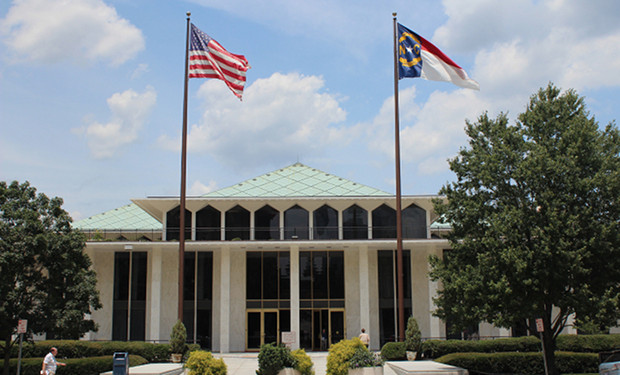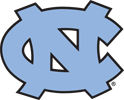Show Me The Money: The increasingly complex laws of collegiate athletics
The state of North Carolina brings the nation’s first criminal indictments under the Uniform Athlete Agents Act.
It all started with a football player’s tweet. In the early morning hours of May 29, 2010, Marvin Austin, then a defensive tackle for the University of North Carolina (UNC) Tar Heels, posted, “I live In club LIV so I get the tenant rate… bottles comin [sic] like its [sic] a giveaway.” Those seemingly innocuous words, later identified as lyrics from hip-hop artist Rick Ross’s song “Sweet Life,” launched an NCAA investigation into the team and, eventually, the entire University.
Although an inquiry into several players’ connections with agents would commence that summer, it is unlikely that anyone could have foreseen the veritable Pandora’s box that was opened by Austin’s tweet. In the immediate, his post had the indirect effect of dashing UNC fans’ hopes that the team might live up to lofty preseason predictions: on September 4, 2010, Tar Heel faithful watched as the team, forced to sit thirteen players for NCAA eligibility questions, lost a heartbreaking season opener to Louisiana State University.
In March 2012, the NCAA’s Committee on Infractions dealt UNC its devastating blow: a one-year postseason bowl ban, the loss of five football scholarships per year for the next three years, and three years’ probation.
Shortly thereafter, allegations that associate head coach John Blake illegally steered UNC players to NFL player agent Gary Wichard, now deceased, led to Blake’s resignation in September 2010. The University fired head coach Butch Davis the following summer. And in March 2012, the NCAA’s Committee on Infractions dealt UNC its devastating blow: a one-year postseason bowl ban, the loss of five football scholarships per year for the next three years, and three years’ probation.
But UNC’s nightmare was not confined to the football field. The University appointed private consulting firm Baker Tilly and former North Carolina Governor Jim Martin to conduct an independent investigation into allegations of widespread academic misconduct in the Department of African and Afro-American Studies, courses from which disproportionately high numbers of student-athletes were enrolled each semester. After concluding its investigation in December 2012, Martin’s team found academic fraud running the gamut from unauthorized grade changes to no-show classes. Martin’s report (pdf) stated that over 200 classes in the AFAM department had been affected since 1997. But because some of the students who had enrolled in the compromised classes were not athletes, Martin’s team classified the problem as an academic scandal, not an athletic one that might invite more NCAA sanctions.
So what makes the UNC case unique? It is the first of such incidents to lead to criminal indictments under the Uniform Athlete Agents Act (UAAA).
The UNC football program is certainly not the first to be punished for its players’ impermissible contact with professional agents, nor is the University unique in finding itself caught in a messy academic-athletic scandal. In 2011, the NCAA Division I Infractions Appeals Committee upheld penalties assessed by the Association the previous year against the University of Southern California for “a lack of institutional control, impermissible inducements, extra benefits and exceeding coaching staff limits” that touched the University’s football, men’s basketball, and women’s tennis teams. And in 1999, the Minnesota Golden Gophers men’s basketball team was sanctioned after the St. Paul Pioneer Press reported that academic tutors had been writing papers for several of its players.
The North Carolina Uniform Athlete Agents Act, codified under N.C. Gen. Stat. §§ 78C-85-105, defines an “athlete agent” as one who “enters into an agency contract with an athlete; solicits or recruits an athlete to enter an agency contract; or holds himself or herself out to the public as an agent.”
So what makes the UNC case unique? It is the first of such incidents to lead to criminal indictments under the Uniform Athlete Agents Act (UAAA). On October 3, 2013, Jennifer Wiley Thompson, a former tutor to UNC football players and a central figure in the University’s scandal from its inception, was indicted on four counts of athletic agent inducement. Each charge carries a maximum sentence of 15 months in prison. She has been classified as a “runner,” an individual who acts as a liaison between an agent and a student-athlete. Thompson has been accused of providing monetary gifts and airfare to former UNC wide receiver Greg Little on behalf of Georgia-based sports agent Terry Watson. Watson has also been indicted under the UAAA, as have three other individuals.
The UAAA aims to protect student-athletes and universities from potential NCAA violations that might arise from impermissible contact between sports agents and student-athletes. But is it aimed at the wrong target?
Drafted in 2000 by the Uniform Law Commissioners and supported by the NCAA, the UAAA aims to protect student-athletes and universities from potential NCAA violations that might arise from impermissible contact between sports agents and student-athletes. The model statute has been adopted in whole or in part by 43 states, including North Carolina. The North Carolina Uniform Athlete Agents Act codified under N.C. Gen. Stat. §§ 78C-85-105, defines an “athlete agent” as one who “enters into an agency contract with an athlete; solicits or recruits an athlete to enter an agency contract; or holds himself or herself out to the public as an agent.” The Act requires agents to register with the North Carolina Secretary of State and outlines the steps that they must take in order to enter into an agency contract with a student-athlete. For example, student-athletes must be notified that they will lose their eligibility to compete at the collegiate level by signing such a contract. In North Carolina, an athlete agent’s violation of the Act is a Class I felony.
It is not difficult to understand why universities support the UAAA. Universities make major investments in student-athletes, and as illustrated by UNC’s situation, can face severe punishments if those athletes do not adhere to the NCAA’s rules for them. For this reason, the Act gives universities standing to sue both athlete agents and student-athletes who violate its provisions. In October 2013, the Uniform Law Commission’s drafting committee met to discuss potential revisions to the UAAA. Paul Pogge, an associate athletic director at UNC, coauthored a nine-page memorandum outlining proposed changes to the law, which included increasing financial penalties, strengthening registration requirements, and broadening the Act’s scope to include runners and marketers, as well as other individuals.
But are these our villains?
But is the UAAA aimed at the wrong target? Is Jennifer Wiley Thompson, a former Durham elementary school teacher and a UNC graduate herself, deserving of five years in prison for her alleged role in her beloved alma mater’s attempt at football relevancy? How about, for example, an eighteen-year-old star running back, naïve in the ways of business, but excited to be living out his dream and providing for his family? According to Sports Illustrated, 78% of professional football players are bankrupt or in dire financial straits just two years after retirement. Are these our villains? These are complex questions with multifaceted answers.
And it all started with a football player’s tweet.







